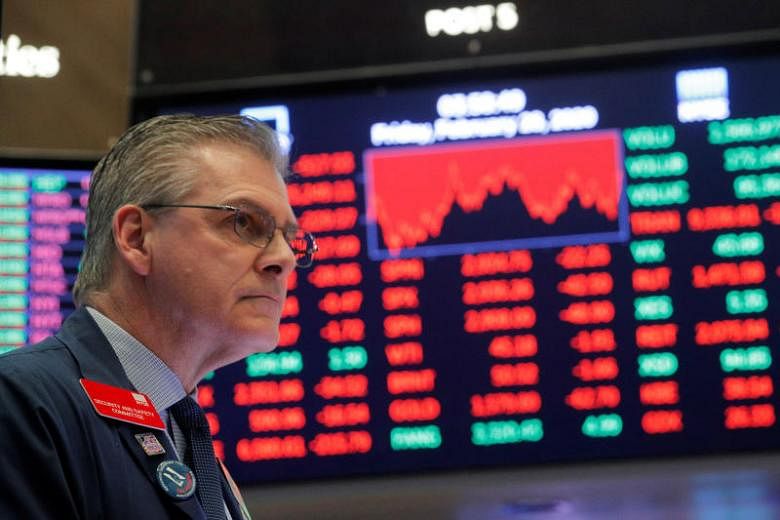LONDON • The coronavirus outbreak is plunging the world economy into its worst downturn since the global financial crisis, the Organisation for Economic Cooperation and Development (OECD) warned yesterday, urging governments and central banks to fight back to avoid an even steeper slump as the global death toll crossed 3,000.
The global economy is set to grow only 2.4 per cent this year, the lowest since 2009 and down from a forecast of 2.9 per cent in November, the OECD said, in an update of its outlook. It also raised the possibility of global contraction this quarter. The Paris-based policy forum projected the global economy could recover to 3.3 per cent growth next year, assuming the epidemic peaked in China in the first quarter of this year and other outbreaks proved mild and contained.
However, if the virus spreads throughout Asia, Europe and North America, global growth could drop to as low as 1.5 per cent this year, the OECD warned. "The main message from this downside scenario is that it would put many countries into a recession, which is why we are urging measures to be taken in the affected areas as quickly as possible," OECD chief economist Laurence Boone said.
The total number of coronavirus infections globally rose to more than 89,200 yesterday, with China accounting for 80,026 of those and reporting 2,912 deaths, as per the latest data. Two new coronavirus cases were confirmed in Singapore, taking the total number of infected people to 108, even as four more patients were discharged.
Ms Boone said the governments needed to support health systems with extra pay or tax relief for workers doing overtime, and short-time working schemes for companies struggling with a slump in demand.
Governments could give companies further financial relief by cutting social charges, suspending value-added taxes and providing emergency loans for sectors particularly hard hit, such as travel.
In a nod to some European nations like fiscally conservative Germany, she said governments should not fuss over spending caps while letting schemes such as unemployment insurance do their job of softening the blow from the downturn.
Officials with the US Federal Reserve, European Central Bank and Bank of Japan have signalled in recent days that they are ready to do more if needed. If the situation deteriorates, a coordinated response of central bank easing and fiscal stimulus amounting to 0.5 per cent of economic output in G-20 nations could lead to 1.2 per cent higher growth within two years, the OECD said.
So far, international coordination appears to be limited to the Group of Seven nations, whose finance ministers are due to hold a conference call this week to take a decision on "concerted action" to limit the impact of the outbreak on economic growth. "We will have a conference on the telephone - because we need to avoid travelling too much - of G-7 ministers this week to coordinate their responses," French Finance Minister Bruno Le Maire said yesterday.
Stocks were unsteady in global markets yesterday, with European markets starting the day with gains before beginning to fade. Most Asian indexes finished the trading session higher. However, the Straits Times Index closed 0.11 per cent lower.
The Dow Jones was up 0.12 per cent in early trade yesterday.
In the OECD's base case, in which the situation does not deteriorate dramatically, China would bear the brunt of the downturn this year, cutting its 2020 forecast to a 30-year low of 4.9 per cent, down from 5.7 per cent in November.
In the euro zone, where the number of cases is rising fast, growth was seen at 0.8 per cent, down from 1.1 per cent in November.
The virus was seen as having a limited impact on US growth, which was seen at 1.9 per cent, down from 2 per cent in November.
Beyond the coronavirus, other significant risks continue to weigh on the global economic outlook, including trade and investment tensions which "remain high and could spread further", and uncertainty over Brexit, said the OECD.
REUTERS, BLOOMBERG, XINHUA











